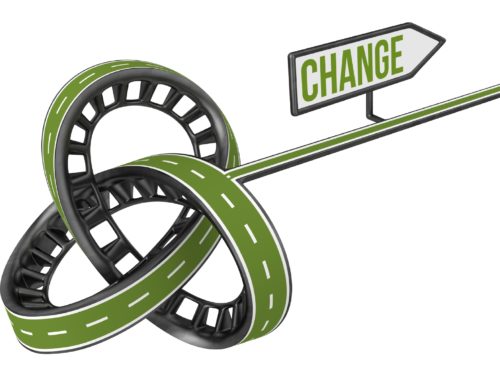Saying thank you shouldn’t be difficult, but apparently it is. Research from O.C. Tanner suggests that 65 percent of American workers didn’t receive a single piece of recognition in the past year.
I’ve studied and taught the importance of showing appreciation and expressing thanks for decades. And yet, two of the most important lessons I’ve learned about effective recognition didn’t come from research but from my own mistakes. Here’s what happened and what you can learn from it.
It’s not just about what’s important to you. I worked in hospital administration before my current career. I was directly responsible for eight departments including food service.
Staff morale was low when this group joined my part of the organization, and I decided to do something about it. Recognition was a central piece of my strategy.
I was in the department at least weekly to provide feedback and show my appreciation for their hard work. I thanked them for staying within budget. I recognized them for their sanitation and patient satisfaction scores.
The energy improved within just a few months, and I was feeling pretty good about our progress. Then Walter, the department manager, knocked on my door one afternoon.
“Do you have a minute?” Walter inquired.
“Sure,” I said. “What’s up?”
Walter got straight to the point, “Randy, the staff wants you to know that they truly appreciate the interest you are showing in the department. They’ve never worked for any senior leader who takes so much interest in what they are doing.”
Walter continued after a short pause, “Randy, the staff asked me to make a request on their behalf. Sooner or later they would like for you to taste the food.”
There it was. I was talking about things that were important to me. They wanted to hear my thoughts on the taste of the broccoli casserole.
Here’s the lesson: The old saying that “what gets recognized gets repeated” is true. It wasn’t that the staff was unconcerned about budgets and survey scores.
What is also true is that recognition becomes a powerful tool for building and sustaining strong relationships when we move beyond what’s important to us and acknowledge performance and behavior that is important to those to whom we are expressing our thanks.
Being nice isn’t recognition. The overall results of my first 360 feedback were good … except from my direct reports on the area of providing recognition. I asked my administrative assistant Amy for some feedback. The conversation went something like this.
“Amy, I’m confused. I received low scores from my direct reports (including you) on providing recognition. I thought I was doing well in that area. I write positive comments and say thanks on every piece of work that I see. What am I missing?”
Amy smiled and said, “Randy, you are right. You do say thank you and let us know that you like the work we are doing. In fact, you do it all the time. You are a nice guy, and we’re all pleased to work with someone who is polite and considerate. Your parents raised you well. But to us, those positive messages you share aren’t recognition. They are just you being nice.”
Here’s the lesson: Amy showed me that the most effective recognition shows a special effort. Doing what you have always done – even if it is positive – isn’t the same as going out of your way to say thank you. This isn’t an excuse to be a jerk in everyday interactions so that even the smallest gesture is meaningful. Expressing your appreciation is multiplied when the person on the receiving end knows that you made a special effort.
Speaking of expressing thanks … it is the holiday season here in the U.S. I trust you will reflect on the areas of your life that deserve your gratitude. I am doing the same, and one of those in your time to read my posts.
Randy Pennington is an award-winning author, speaker, and leading authority on helping organizations achieve positive results in a world of accelerating change. To bring Randy to your organization or event, visit www.penningtongroup.com , email info@penningtongroup.com, or call 972.980.9857.





